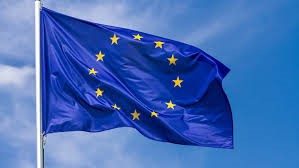By William Madouk
The European Union has announced sanctions exemption for all transactions related to providing disaster relief and humanitarian assistance to South Sudan.
This means that donors and organizations don’t need to spend resources and time proving an exemption from sanctions before sending aid to 8 sanctioned regimes.
The EU Council revised certain EU restrictive measures in keeping with UN Security Council resolution 2664 (2022), provisions for a humanitarian exemption to asset freeze measures in UN sanctions regimes.
“The EU has implemented the humanitarian exemption to UN sanctions set out by UNSC Resolution 2664 (2022) in respect of its Iran, DRC, Sudan, South Sudan, Libya, North Korea, terrorism and Mali sanctions regimes,” partly reads the statement by the EU.
South Sudan is facing the worst humanitarian crisis since independence due to continued conflict and climate change. Unprecedented historical floods have led to massive displacement and crop destruction.
According to the report, about 9.4 million people (including almost 5 million children) will require humanitarian assistance in 2023.
And over 2 million people are internally displaced, and 2.3 million have sought refuge abroad.
In February 2023, the EU introduced an exemption to its Somalia, CAR, Yemen, Haiti, Iraq and Lebanon (assassination of former Prime Minister Rafiq Hariri) sanctions regimes.
The EU Council’s March 31 decision applies the exemption to 14 UN sanctions regimes transposed into EU law as well as to existing EU autonomous listings that complement the UN designations.
“As a result of the humanitarian exemption, certain categories of humanitarian actors, including UN programmes and non-governmental organization participating in UN humanitarian response plans,
“Can engage in transactions with listed individuals and entities without any prior authorization, if the purpose is to deliver humanitarian assistance or to support other activities that support basic human need,” it stated.
According to the union, this will provide a clear framework for operators, as they will be able to benefit from the humanitarian exemption without making any distinction between EU and UN listings.
“This decision sends a strong signal to humanitarian and economic operators: EU sanctions do not stand in the way of delivering humanitarian assistance,” EU said earlier.
They added that “EU’s steadfast determination to avoid unintended negative consequences of sanctions on humanitarian activities, and the importance given to the full adherence to international law in the EU’s sanctions policy.”




